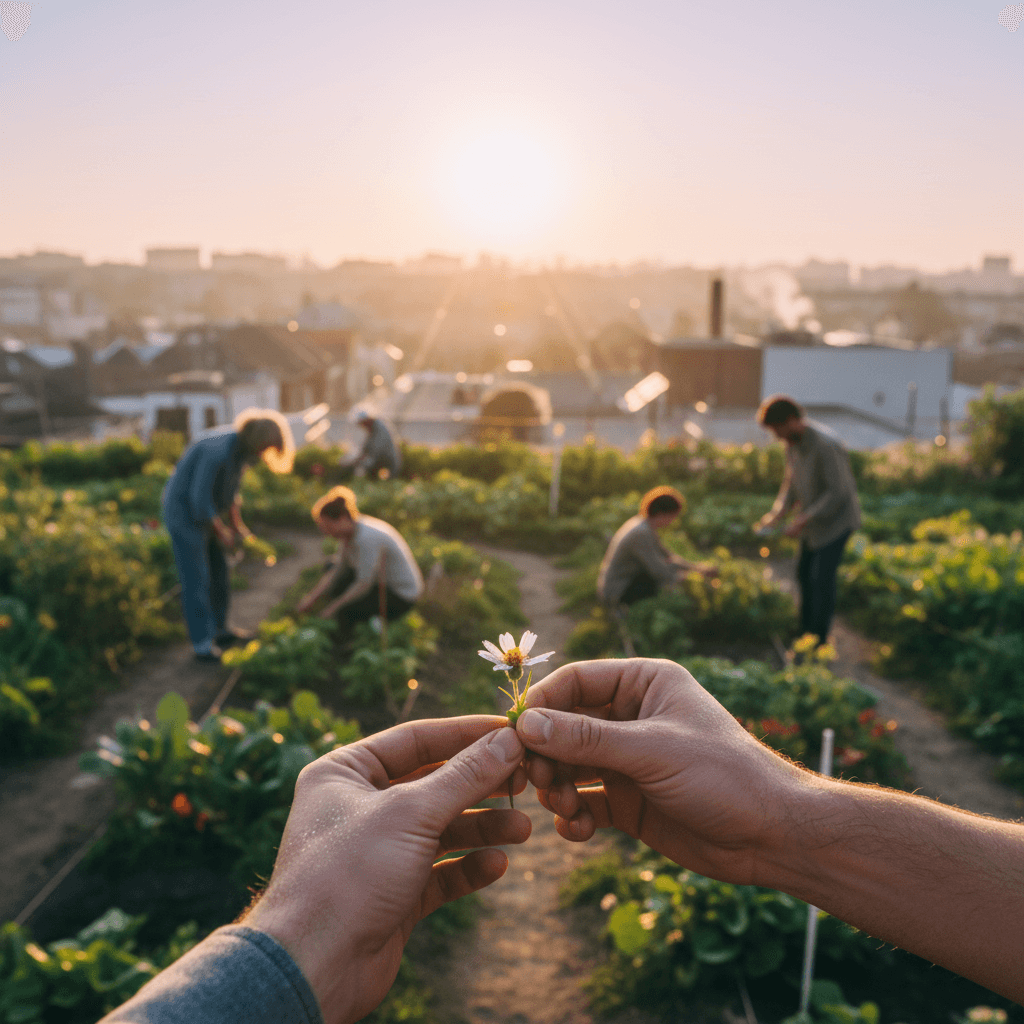Small Mercies, Big Changes: Kindness that Persists

Stand for the small mercies; change grows from tiny, persistent kindnesses. — Malala Yousafzai
—What lingers after this line?
One-minute reflection
What feeling does this quote bring up for you?
Why Small Mercies Matter
At first glance, small mercies may seem inconsequential—one gentle word, one shared meal, one open door. Yet research on the “identifiable victim effect” shows that compassion intensifies when we can picture a single person in need, not a faceless crowd (Paul Slovic, 2007). Small kindnesses meet that human scale, converting empathy into action. Consequently, tiny gestures become the most reliable on-ramp to moral courage. By lowering the threshold to help, we build habits that endure and expand. This logic prepares the ground for Malala Yousafzai’s insistence on persistence: micro-acts are not a retreat from change but the seed of it.
Malala’s Micro-Acts, Macro Impact
In Malala’s own life, change began with modest steps: a teenager’s diary for BBC Urdu under the pen name Gul Makai (2009), describing girls’ daily barriers to education. After surviving the 2012 attack, she turned personal resolve into public advocacy that still prizes the tangible—scholarships, teacher support, and local partners through Malala Fund. Her UN “Malala Day” address (2013) distilled the philosophy: “One child, one teacher, one book, and one pen can change the world.” Each item is small, yet—when multiplied—forms an engine of durable transformation. This suggests a broader principle that science helps explain.
The Science of Small Wins
Organizational scholar Karl Weick’s “Small Wins” (1984) argues that complex problems yield to a series of modest, concrete victories. Behavioral studies echo this: the foot-in-the-door effect (Freedman & Fraser, 1966) shows that agreeing to a small request primes people to accept larger ones later. Habits, once anchored, become self-propelling (Charles Duhigg, 2012; BJ Fogg, 2019). Therefore, persistent kindness functions like compounding interest: tiny deposits—daily check-ins, brief notes of encouragement, routine donations—aggregate into substantial moral capital. The next question is how these acts travel through communities.
Kindness as Social Contagion
Altruism spreads. Social network research suggests cooperative behavior cascades through ties, influencing people several degrees removed (Nicholas Christakis and James Fowler, PNAS 2010; Connected, 2009). A single generous act can trigger a pay-it-forward chain, nudging norms toward care. Even toddlers show spontaneous helping (Warneken and Tomasello, 2006), indicating a built-in readiness that culture can amplify. Thus, when we model small mercies consistently, we give others permission—and a template—to do the same. This dynamic is the quiet architecture behind social movements.
History’s Revolutions of the Modest
Great shifts often begin with humble gestures repeated with resolve: Gandhi’s spinning wheel and the 1930 Salt March reframed resistance through simple, daily acts. Rosa Parks’s measured refusal in 1955, while singular, catalyzed a sustained boycott powered by countless ordinary choices. Wangari Maathai’s Green Belt Movement (from 1977) planted one tree at a time until entire landscapes and livelihoods changed. These stories echo Malala’s message: perseverance in the small makes the impossible plausible. The question, then, is how to practice this in ordinary life.
Practicing Persistent Kindness
Begin where friction is lowest: set a recurring micro-donation, schedule a weekly fifteen-minute check-in, bring an extra lunch, or tutor one student. Design for consistency with nudges like defaults and reminders (Thaler and Sunstein, Nudge, 2008), then track “small wins” to sustain momentum. Finally, link your acts to others: join mutual-aid chats, pair with a friend for accountability, and share simple scripts people can copy. As these mercies repeat and spread, they cease to be small; they become the scaffolding of lasting change—exactly the growth Malala envisions.